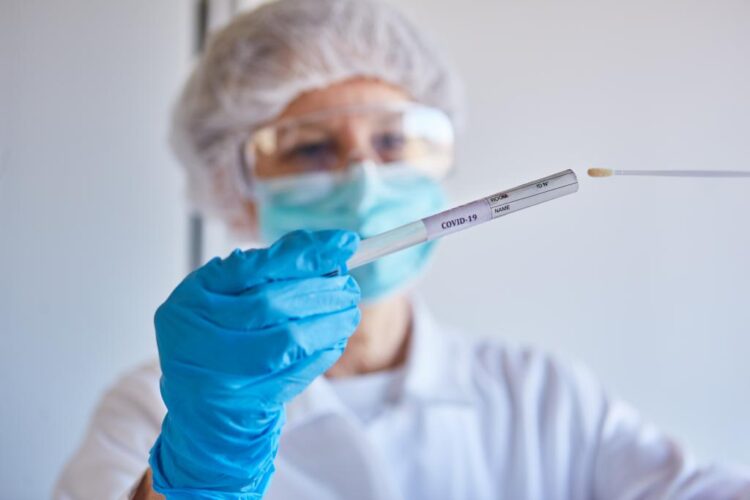By Sheila Mckenzie-
The admission by a government official yesterday that rapid tests due to be rolled out in schools next month can provide both false positives and negatives is adding to distrust about the reliability of Covid 19 testing.
With growing concerns about the effectiveness of mass testing planned for Uk pupils in 2021, distrust is already growing among professionals and the public in general about the reliability of testing.
Research conducted by this publication in relation to positive testing and other issues around Covid-19 revealed growing distrust about the reliability of tests, although more members of the British public said they trusted the outcome of Covid-19 tests.
With warnings to minimise social contacts over the Christmas, research will continue over the Christmas period into the new year
Social worker, Synthia Reynolds told The Eye Of Media.Com: ”if the government is already admitting that testing can provide false positives, what faith is the public to have in the national statistics revealing positive covid-19 tests?
Its terrible to think that one could be told they have tested positive for a potentially deadly virus, only for the information to be wrong. No excuses are acceptable for this, not in these times”.
School teacher, Matt Caesay, said: ” it is worse than ridiculous that false positive tests can be given. That’s frightening, and the question to ask is how many of such tests have already been given to people? Errors of test results have been admitted to in the past, but this confession must make us wonder just how reliable Covid-19 tests are, even if they are reliable most of the time”.
Last month, more than 1,300 people who gave samples between 19 and 23 November received positive results, when the tests were actually void. All those affected were told to take another test by the Department of Health and Social Care (DHSC) said, but the outcome of the subsequent tests were never made public.
School leaders were also told in a webinar led by Department for Education officials yesterday that £78 million will be made available to support schools roll the scheme out. The funding will be based on school size, with a 1,000-pupil and staff inner London secondary getting around £20,000.
Scrutiny
The government’s mass testing plans have come under scrutiny recently after studies suggested the lateral flow tests – which provide results within 30 minutes – miss large numbers of positive cases.
An NHS Test and Trace official told school leaders today the tests have “gone through a great deal of testing and rigorous evaluation”. However she admitted there are “chances you can get a false positive and false negative, [there’s] no denial”.
School leaders were also told the lateral flow tests have also been “proven” to work against the new strain.
Validation Studies
A document shown during the webinar stated the tests “work”, highlighting validation studies conducted by Oxford University and Public Health England that show they were “as accurate in identifying a case as a PCR test” (which are processed in labs).
However, the guidance did state that the tests have lower sensitivity and are better at picking up cases when a person has a higher viral load. The latter statement is a cause for concern because of its stated requirement for higher viral load for more efficient testing outcomes.
Poor Testing Performance
During mass testing in Liverpool, the lateral flow tests missed over half of cases. A study from testing among university students suggests even poorer performance.
Madness
Professor Jon Deeks, a Biostatistician at the University of Birmingham, said the use of these tests in such circumstances was “madness” as they are “not working well” at detecting Covid in people without symptoms.
“We’ll end up with outbreaks in the school which would wouldn’t happen in our current policy of sending kids home,” he told the BBC.
A document shown during the webinar stated the tests “work”, highlighting validation studies conducted by Oxford University and Public Health England that show they were “as accurate in identifying a case as a PCR test” (which are processed in labs).
However, the guidance did state the tests have lower sensitivity and are better at picking up cases when a person has a higher viral load.
During mass testing in Liverpool, the lateral flow tests missed over half of cases. A study from testing among university students suggests even poorer performance.
Currently, pupils who are close contacts of positive cases isolate. However under the new plans, close contacts will be tested each day for seven days. If they are negative, they can stay in school for the day.




